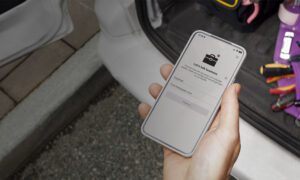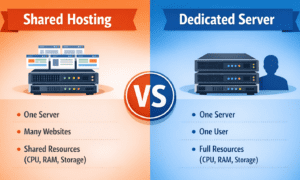From sourcing the right candidates to managing overwhelming applicant volumes, recruiters face an array of obstacles in their everyday life of hiring.
However, with the rise of artificial intelligence (AI) tools, many of these challenges can be effectively handled, leading to streamlined processes and improved outcomes.
Now we’ve all heard about generative AI, conversational AI, AI powering vehicles, improving customer service, reshaping business operations, driving innovation, and unlocking new opportunities for growth and efficiency. What about recruitment?
With much of the buzz these days around AI hiring and firing, AI’s incredible impact on hiring, especially when it comes to admin tasks, cannot be overlooked.
In this article, we explore six common recruitment challenges that a recruiter faces and the innovative AI solutions that can help overcome them.
1. The Woes of Talent Sourcing
Finding qualified candidates in a competitive market is a perennial struggle for recruiters. Finding the right skill-set and the cultural fit can take weeks. And quite frankly, traditional methods often yield limited results, leading to prolonged vacancy periods and increased time-to-hire.
Solution: AI-powered sourcing tools offer a solution by leveraging advanced algorithms to identify and engage with potential candidates. These tools can analyze vast amounts of data to pinpoint individuals with the right skills and experience, even those who may not be actively seeking employment.
By automating candidate discovery, recruiters can expand their talent pool and accelerate the hiring process.
For instance, LinkedIn Talent Solutions is an excellent example. LinkedIn’s Recruiter platform uses AI algorithms to analyze millions of profiles and identify potential candidates who match specific job requirements. These tools can automatically recommend candidates based on skills, experience, and other relevant criteria, allowing recruiters to quickly and efficiently identify top talent.
2. Candidate Screening (And Screaming!)
We hear you. We’ve all been there. Sifting through countless applications, and resumes, looking for that one perfect candidate. We’ve all cried on the bathroom floor.
Reviewing resumes and applications is a time-consuming task that can overwhelm recruiters, particularly when faced with a high volume of applicants. Manual screening processes are prone to bias and may overlook qualified candidates.
Solution: AI-driven resume screening tools can streamline this process by automatically analyzing candidate profiles and identifying those that best match the job requirements. Machine learning algorithms can be trained to recognize relevant keywords, experience levels, and qualifications, enabling recruiters to focus their attention on the most promising candidates. By reducing manual effort and improving accuracy, AI screening tools enhance efficiency and ensure fairer evaluations.
Here’s a tool to help you out with this one. Greenhouse is actually very helpful when it comes tovscreening. The AI-powered platform uses natural language processing (NLP) and machine learning algorithms to analyze resumes and assess candidates’ qualifications. The system can automatically parse resumes, extract relevant information, and compare candidates against job requirements.
3. Having One-On-One Interviews
If you’re a recruiter, you already know this. The nightmare doesn’t end at candidate screening. From coordinating interviews to engaging in one-on-one conversations while taking notes, it’s no walk in the park!
Coordinating interview schedules is a logistical nightmare, especially when multiple stakeholders are involved. Miscommunications and scheduling conflicts can result in delays and frustration for both candidates and hiring teams.
And then imagine, you have to take notes while you’re conducting an interview. Let’s be very clear on multi-tasking, it’s a hoax. If your attention is divided, you’re no good to any task! You would either end up disappointing the candidate or end up taking the wrong notes.
Solution: AI-powered scheduling assistants simplify this process by automatically coordinating interview times based on participants’ availability. These tools can sync with recruiters’ calendars, suggest optimal time slots, and send automated reminders to participants.
An example of an AI-powered scheduling assistant is x.ai. Users can simply cc the assistant in email conversations, and it takes over the scheduling process, negotiating meeting times with all participants. The assistant integrates with popular calendar platforms like Google Calendar and Outlook, ensuring that meetings are scheduled at mutually convenient times
And for your note-taking woes, you can use AI recruiting softwares like Quil. This tool is relatively new but is quite handy when it comes to automating note-taking during interviews and updating ATS.
4. Candidate Experience
A positive candidate experience is essential for attracting top talent and maintaining a strong employer brand. However, outdated or inefficient recruitment processes can lead to frustration and disengagement among candidates.
Solution: AI-driven chatbots and virtual assistants offer personalized support to candidates throughout the application process. These tools can answer frequently asked questions, provide updates on application status, and offer guidance on next steps. By delivering timely and relevant information, AI-powered assistants enhance the candidate experience and foster positive relationships with applicants.
Have you heard of Ada? Ada is a conversational AI platform that enables businesses to build and deploy chatbots for customer service, sales, and support
5. Diversity and Inclusion
Building a diverse and inclusive workforce is a priority for many organizations, but unconscious bias can hinder efforts to attract and retain diverse talent. Traditional recruitment methods may inadvertently perpetuate bias in the selection process.
Solution: AI technologies, such as bias detection algorithms, can help mitigate unconscious bias in recruitment by flagging potentially biased language or decision-making patterns. Additionally, AI-driven job ad optimization tools can ensure that job postings are inclusive and appeal to a diverse audience. By promoting fairness and inclusivity throughout the hiring process, AI tools support organizations in building diverse teams that reflect the communities they serve.
6. Predictive Analytics
Predicting candidate success and retention can be challenging, particularly in fast-paced industries where turnover is high. Traditional methods of assessing candidate fit may lack predictive accuracy, leading to costly hiring mistakes.
Solution: AI-powered predictive analytics tools leverage data from past hiring decisions to identify patterns and trends that correlate with employee performance and tenure. These tools can analyze factors such as skills, experience, and cultural fit to generate predictive models that help recruiters make informed hiring decisions. By harnessing the power of data-driven insights, organizations can improve hiring outcomes and reduce turnover rates.
An example of AI-powered predictive analytics tools is IBM Watson Analytics. IBM Watson Analytics leverages advanced AI and machine learning algorithms to analyze vast datasets and uncover valuable insights and predictions. These tools can analyze historical data, identify patterns, and make predictions about future trends and outcomes
So Basically…
In conclusion, AI technologies offer transformative solutions to some of the most common recruitment challenges faced by organizations today. From talent sourcing and candidate screening to interview scheduling and diversity initiatives, AI tools enhance efficiency, accuracy, and fairness throughout the hiring process. By embracing these innovative solutions, organizations can unlock recruitment success and build high-performing teams that drive business growth and innovation.



































